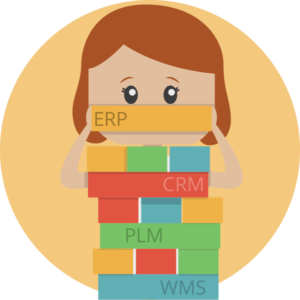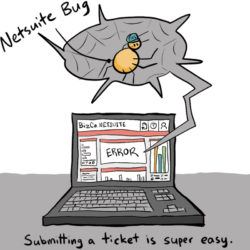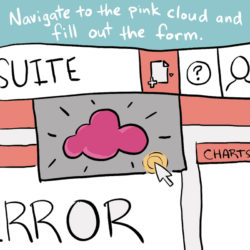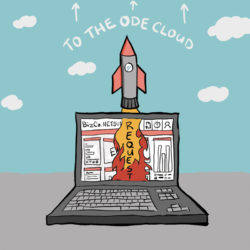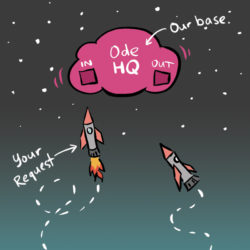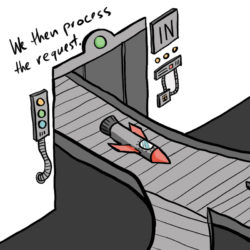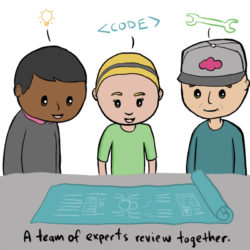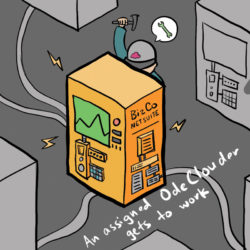Before we begin, I will give an overview of the general concept of Expert-as-a-Service (ExaaS).
What is Expert-as-a-Service?
According to Wikipedia: Expert-as-a-Service (ExaaS) is an online synchronous and asynchronous delivery model of human consulting and/or automated knowledge transfer. Similarly to SaaS (Software as a service), the concept of ExaaS comes from the remote nature of processing data and/or providing service. The user of an ExaaS accesses the service through a webpage, VoiP, IM, etc. or any related mobile app. Typical ExaaS providers are consultants, lawyers, doctors, teachers, etc.
Fifteen years ago, the concept of SaaS (software-as-a-service) redefined the technology landscape, followed by other similar concepts such as PaaS (Platform-as-a-Service) and IaaS (Infrastructure-as-a-Service). In the same manner, the concept of ExaaS will redefine the future of talent acquisition and how companies build their knowledge capital. The most noticeable aspect of ExaaS today is proliferation of freelancing platforms like Upwork,Upcounsel or Toptal. These platforms became extremely successful almost overnight. Toptal, for example, was founded in 2010. Their business model centered around providing highly skilled software engineers to large corporate businesses. By November 2015, Toptal was ranked the #1 fastest growing talent marketplace in North America by the consulting firm Deloitte. Today, Toptal deals with large organizations like Airbnb, as well as small startups with no employees, and it still provides the top 3% of talents in software engineering and finance.
Why are these platforms so successful in the talent acquisition marketplace?
The main reason for their success is the exponential increase in the demand for technical expertise, which is in direct response to a higher complexity of our technology ecosystem. These platforms feature two major elements interacting through an interface. The first element is the exponential increase in the demand for experts, as mentioned above. To guarantee the attractiveness of the platform, there needs to be an exponential increase in incentive offers for experts.
In a report published in 2013 by (OECD), it was stated that the future of growth, especially in advanced economies, will increasingly depend on developing knowledge capital. The report referred to this as “A knowledge-based economy”. That being said, it is an unrealistic goal for a company to try to keep its staff’s knowledge level up-to-date on every piece of technology out there. On the other hand, for most midsize organizations, paying the overhead costs to work with consulting firms and staffing agencies is a waste of money when all they truly need is the knowledge of the individual consultant. The current economic environment and the race for talents has opened amazing opportunities for individuals with specific skillsets to set up shop and offer their knowledge directly to the end customer. These freelancing platforms provide the interface, enabling smooth and effective interactions between the organizations seeking talent and the talented expert.
ExaaS offers great opportunities for startups and midsize companies with specific needs to contract outstanding talents directly — all without having to pay the overall costs of hiring that person.
ExaaS, combined with SaaS, PaaS, and IaaS, are the key factors enabling midsize organizations to play in the same field as enterprise-level organizations and win those battles against companies 10 times their size. As a startup or midsize organization, could you contract a senior-level NetSuite Consultant (the top 3%) with experience in managing complex IT landscape, to administer your NetSuite account on demand? Absolutely. It is the most effective way to get outstanding NetSuite talents without going through the arduous process of hiring. But it raises an important question that I will elaborate on in an upcoming post:
How do you develop a Knowledge Capital for your organization when the most critical part of your information management system is outsourced?
A more complex and advanced NetSuite technology platform
There is no doubt that the Netsuite client base will keep growing over the 20% annual rate in the next couple of years, especially with the scale provided by Oracle. Oracle has not only provided a market scale to Netsuite, but also a technology scale.
In summary, NetSuite will offer more and more advanced features with more depth in industry verticals, which sounds awesome for NetSuite customers, but it also raises 2 important questions:
-
Does your organization have the right tech-minded thought leader who could recommend up-to-date industry leading practices and cutting-edge Oracle NetSuite solutions?
-
Does your organization have the right technical skills to setup and build on these advanced and more complex features available to all NetSuite customers?
In the context of a rapidly evolving NetSuite technology platform, the expertise you need to maintain and optimize your ERP lies far outside the skill-set of a typical NetSuite administrator or developer. Most importantly, it is highly unlikely you would find all the business skills, technical expertise and thought leadership abilities required for this position in a single person. This is exactly why as an organization, you should explore the opportunities provided by Expert-as-a-Service, or in this case NetSuite Admin-as-a-Service. Leverage this model to effectively and timely source the NetSuite skills you need, not only to maintain your platform in good standing but to expand its capabilities to meet the evolving needs of your customers and employees.
Is ODE Cloud NetSuite Admin-as-a-Service the right solution for you? Check it out.
[maxbutton id=”1″ url=”https://odecloud.com/services-2/” text=”How it works” ]
Cheers!
Osar
